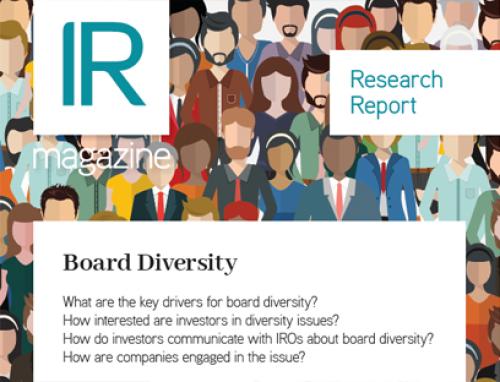How to tailor your CV for recruiters and search firms
Having looked at where IROs are hired from and what skills they have in previous articles, this week we examine which factors can turn a strong IRO candidate into a must-hire proposition.
Previously, our survey found that two thirds (65 percent) of IR hires are made externally. Of these, 27 percent are placed by a recruitment consultant, 15 percent are in response to a job advertisement, 24 are approached by a company based on a recommendation, and 24 percent know their new CEO or CFO from a past job.
Heather McGregor, managing director at Taylor Bennett, says this indicates that who you know is just as important as what you know. ‘Two thirds of the survey’s respondents didn’t find their job through a search firm or recruitment agency,’ she notes. ‘On that basis, it should be obvious that your social capital – who you know – and your human capital – your qualifications – are of paramount importance.’
Fundamentally, McGregor continues, there are different rules for dealing with search firms and recruitment companies. ‘A recruitment firm just needs your CV and to know that you exist and are looking for a new position,’ she explains. ‘You can keep your LinkedIn profile updated to help it, too.’
Search firms, meanwhile, have a slower volume of placements, and far fewer jobs, but those they do have tend to be senior positions. ‘You should make a point of writing to all of the search firms that handle IR roles once a year with an updated CV, and tell them what you’ve been up to for the past year even if you haven’t changed jobs,’ advises McGregor. ‘That won’t necessarily lead to you getting a role, but if you don’t do it you might miss out on something.’
Once the correct target for your CV has been established, what’s the best step an IRO can take to make his or her application more attractive?
The vast majority of jobs Taylor Bennett places require a financial qualification. ‘Seventy percent of the last 90 jobs we placed required a formal financial qualification, such as a CFA or a chartered accountancy qualification,’ McGregor explains. ‘Seventy percent of those 90 jobs required sector experience. The very best candidates were a match in both categories, and 100 percent of successful applicants satisfied one criteria or the other.’
It’s an easy process to start, says McGregor, and even a simple qualification like a Level 1 CFA would be sufficient to show the right intent. Sector experience is also valuable and can be achieved in different ways. ‘If you’re not in the [same] sector [as the desired role], you can look more closely at adjacent sectors,’ she notes. ‘If you’re in oil & gas, for example, you can look at commodities or extractive industries; if you’re in a consumer-facing sector, other sectors with a heavy focus on customers/service make sense.’
McGregor’s final suggestion is to look for non-obvious routes to be introduced to IR jobs. ‘Investment bankers are one of the biggest introducers of IR jobs, and you should make sure you are close to your company’s investment banking advisers,’ she reveals. ‘They’re the ones who will hear about jobs in the market first. In the UK, they are your corporate brokers.’










